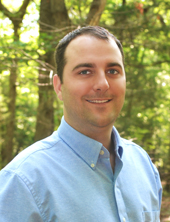Description:
This workshop will usher clinicians into the “third wave” of behavioral therapy, a phrase coined by Acceptance and Commitment Therapy (ACT) founder Stephen Hayes, for the broader and more flexible approaches to behavioral change introduced over the last few decades. Drawing from meditative traditions, these newer therapies – including ACT, DBT, and Mindfulness-Based Cognitive Therapy – not only focus on change but also on strategies to accept what is. This workshop explores the seeming paradox that through acceptance comes change, an idea grounded in theory and illustrated by client experience. Third wave behavioral therapies also share central tenets with older humanistic/existentialist approaches, including a humanistic emphasis on the “paradox of change” and the existentialist aim of leading a value-based life. In the newer mindfulness based therapies, these concepts have been translated into teachable skills, making them easily accessible to clients and clinicians. Workshop participants will learn specific techniques to foster mindfulness, acceptance, and psychological flexibility, and ways to incorporate them into clinical practice regardless of one’s theoretical orientation.
Trainer:
 Tyler Beach, MSW, LCSW is a psychotherapist in private practice in Chapel Hill and Durham. Mr. Beach has studied and embraced newer behavior therapies and has a particular interest in how to integrate them effectively within a relationally-based psychotherapy model. Prior to becoming full-time in private practice, he worked in a variety of settings including as staff therapist at UNC’s Counseling and Wellness, DBT Program Coordinator at Carolina House, and therapist at a local Community Mental Health Center (OPC). A generalist at heart, he has also gained significant experience in working with people with eating disorders and with gay men. He is an active member of the American Academy of Psychotherapists, a group which emphasizes relationally-based and experiential psychotherapies.
Tyler Beach, MSW, LCSW is a psychotherapist in private practice in Chapel Hill and Durham. Mr. Beach has studied and embraced newer behavior therapies and has a particular interest in how to integrate them effectively within a relationally-based psychotherapy model. Prior to becoming full-time in private practice, he worked in a variety of settings including as staff therapist at UNC’s Counseling and Wellness, DBT Program Coordinator at Carolina House, and therapist at a local Community Mental Health Center (OPC). A generalist at heart, he has also gained significant experience in working with people with eating disorders and with gay men. He is an active member of the American Academy of Psychotherapists, a group which emphasizes relationally-based and experiential psychotherapies.
Clinical Lecture Series at the University of North Carolina at Chapel Hill School of Social Work